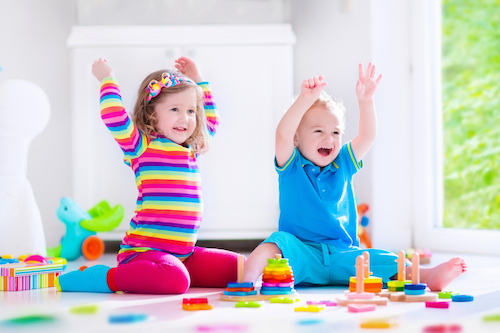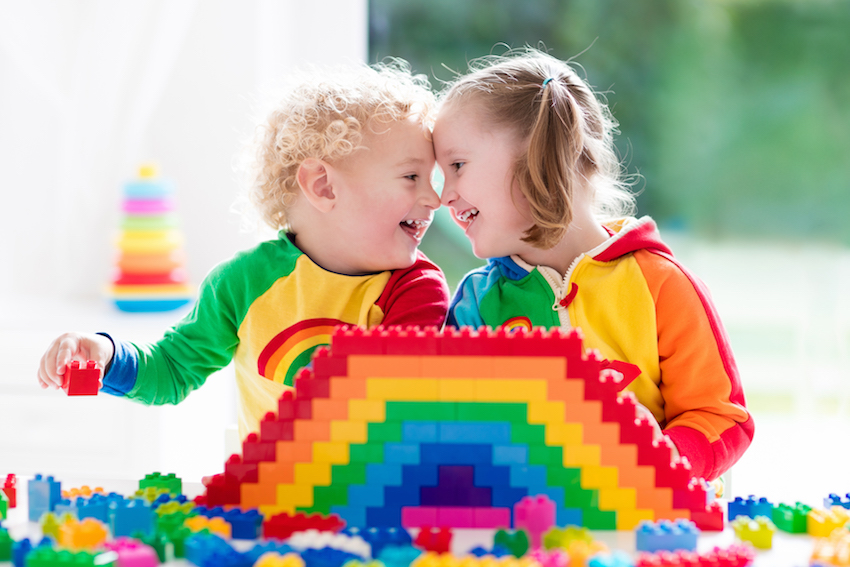“You can discover more about a person in an hour of play than in a year of conversation”
~Plato
Many decades of research have demonstrated that parents play a large role in teaching children how to develop friendships.
The ability for children to make friends also depends on the level of development of their social skills. Popular children generally have strong interpersonal skills being empathy, moral reasoning and perspective taking. They usually have strong verbal skills and know how to control any selfish and or aggressive impulses. They are known to be prosocial i.e. helpful, caring, sharing.
Here are some research based tips on how you could help your children develop friendships through play:
- Involve your child in activities with other children:
Allowing your child to be around other children will help them be acquainted with the community they belong to. Not only will they learn new life skills in this process it is a chance for them develop friendships with children with similar interests and have things in common. Children who are similar are more likely to agree about what is their idea of fun.
Contact your local council to inquire about what local programs they can offer including playgroups, early intervention groups, local playgrounds, recreation programs etc
- Inviting other children home to play.
Children are more likely to become friends with other children if they have fun together, feel a sense of trust, and make each other feel good about themselves. As parents and carers we have to provide the right environment for this to occur.
Inviting other children to play with your child inside your home could also be another way of fostering friendships. It is one way of letting your children learn who their neighbours are and developing closer relationships with them by playing together inside your home. This is also an opportunity for the parents or primary caregiver to learn more about your child and how he deals with other kids their age in a controlled safe environment.
- Teaching your child how to get along with other children when they are playing.
Children can only learn what is right and what is wrong by the guidance of their parents and carers. At a young age, they should be taught how to get along with other children when playing. Teaching skills including sharing, understanding the feelings of others, empathising, taking turns, using words to describe feelings and thoughts, playing group games, and helping them understand social rules as they make up rules for play.

- Use children’s books to teach social skills – on the topics of friends, socialising, conversation, and playing together.
Use resources from your local library, especially those that teach social skills. Use books as a platform to teach social skills, through story telling or participative activities. Books can provide a visual depiction of how good manners are used and what right behaviour is, this will help them learn how to do it themselves and apply it in their daily lives.
- Give and take build friendships.
Children who understand the concept of give and take in a relationship helps them build friendships. If children know how to give to their peers, they will find gratification in the good feeling of giving. They would find value in the giving as they can identify with the feeling once it is reciprocated.
- Turn taking.
In play groups, when there is one common toy being played with, taking turns needs to take place for the children to have an experience in the activity. Like, for example, in a playground where there is a common swing to be used by many kids, waiting for one’s turn is necessary. In this way, children learn patience in waiting and enjoy their time even more once it’s their turn.
- Making up when things go wrong.
Squabbles inevitably happen when kids play together, but the ability to make up when things go wrong make for good ways to start meaningful friendships for our little ones. Teaching how to make-up after a disagreement is important in helping them understand that it’s just play and that it is more important to be friends with your playmate no matter what the disagreement was about.
Let your children play and enjoy their childhood. Playing with other children their age could be the start of lifelong friendships that they need as they grow into more mature individuals.
“Toys are children’s words and play is their language”
~Garry L.Landreth
You may also like to read:
5 Engaging Learning Experiences for Home









